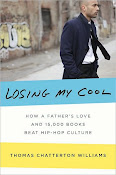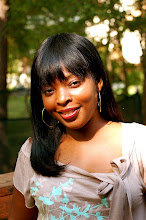
It started, first, with the two little girls telling Mari they didn’t like her outfit. The next day, they told my baby she smelled. The day after that, one of them touched her twists and said, “Ew,” and then trotted off, giggling, over to the corner of the classroom, where her gangsta boogie partner and she continued to whisper and point at Mari while she sat in a heap, struggling to finish her work through her tears.
She’d told me a couple of times that the girls were doing mean things to her, and each time she complained, I advised her the way a good parent should. First, I reminded her that no matter what anyone says, she is special and beautiful and loved. The second time, I gave her some choice words for her two nemeses. When they touched her hair, I pulled her teacher aside and made it clear: “You better talk to them before I do.” The next day, the teacher made clear that anyone caught being mean to a fellow student would get a note home.
Yeah, well, as you can guess, that threat fell on deaf little ears. See, one of the kids doing the taunting was the school director’s daughter; the other was her little BFF/sidekick. And the two of them figured they could just go on ahead and keep at my daughter, sans repercussion. And so they did—this time, picking on my Mari and a friend of hers out on the playground, saying words so ugly that by the time recess was over, half the class was in tears and my nephew, Mari’s cousin, was threatening to take both of the ringleaders out. The next morning, I found Mari in her room crying and fretting over her outfit, fearful that the Oilily skirt dress and tights I’d picked out for her to wear would bring down the wrath.
And that was the day that I said, “Nope—no more.” Now, I wish I could tell you that the resulting afternoon roundtable of parents, administrative liaisons, teachers, and the school director ended in one big Kumbaya moment. But er, um, yeah—I can only be nice but for so long. Let’s just say that by the time Nick and I stomped out of there, the administrators agreed to put into place a system for the kids to complain about bullying anonymously, so that the kids would feel comfortable seeking help. The teachers also agreed to be more vigilant in keeping an eye out for the troublemakers. But I also made clear that if either one of those little heiffas said word ONE to Mari again, she had the go-ahead from her mama to whoop that ass.
Period.
I’m all for taking the high road and working it through and hugging it out and all of that—please believe me. But I also believe that when you’re at the end of your rope with the niceties, you gotta let ‘em know. We finished up the year there at that private school with the girls keeping a safe distance from Mari (Note: the threat of the beat down was a scare tactic, not reality—Mari’s no bruiser, and I would never encourage her to fisticuffs. But the threat sure did move that school director to action and put an end to the bull.) More important, though, is that leading all the way up to that meeting and after it, too, our child knew that her mommy and daddy had her back.


All of this madness came rushing back to me this weekend when my nephew, Miles, was invited to sit on
a panel of kids gathered by the Atlanta Journal-Constitution to discuss bullying and the apparent
suicide of 11-year-old Jaheem Herrera, a Georgia 5th grader who hung himself April 16 after bullies at his school relentlessly called him “gay” and a “snitch.” Jaheem’s death came just a 10 days after another 11-year-old,
Carl Walker-Hoover, of Massachusetts, committed suicide rather than face another day of bullying and being called “gay” and a “snitch.”
Their stories break my heart. Because they were babies, making the very grown-up decision to take their own lives. Because they thought death would be better than another day of taunting, hitting, choking, and threats meted out by their peers.
Because clearly, these little boys didn’t feel like any of the grown-ups had their back.
I can’t presume to know how much Jaheem and Carl’s parents did to stand up for their boys; both their mamas say they complained to school officials, but the response was either inadequate (in Jaheem’s case) or ineffective (in Carl’s case). What one can presume, though, is that each of these children felt like they had to take matters into their own hands.
Oh, how I wish that all the grown-ups involved recognized and practiced what Nick and I truly believe: That it was on us to handle the mess. What we were trying to do was to make sure that our child knew that whatever was going on, it had nothing to do with her—that somebody else was wrong and that the responsibility for responding to the bad things that were being done to her wasn’t hers alone.

The African American community has always had this complicated response to bullying; the clear message we’ve always sent to our children is that it’s up to them to go out there and handle the bullies on their own. Come on, you know the scenario: You get picked on, your mom or dad slaps you for being a punk, and then pushes you out the door and says, “Handle it, or I’m going to whip you myself.” It’s a tradition we have of trying to toughen up our kids—of making them feel like they have the power to stop the bullying all on their own.
There’s something to be said for this; our kids are going to face bullying throughout their lives. Bullies will be more clever when we get older—people will use their position and power to force us to do things we don’t want to do or make us feel bad about ourselves, and so there is some value to preparing our kids to fight, not flee, these battles. But one of the messages we send to our kids when we make them fight is that we don’t necessarily have their back—that if they “snitch” they’re being weak and we’ll be more upset by this than we will with any bully.
What I’m calling for is balance. Perhaps we need to update our responses—to be a little bit more sensitive to the way that our children think and react to danger and threat. We need to let our kids know that we’re stepping in on their behalf—to send the message that people care about them and will protect them, no matter what. Some kids are going to be able to suck it up and face the bully down. Others are going to be afraid and do damage to themselves instead. It’s on us to give them a third option—to trust that their parents, the grown-ups in charge, will do something about it, and hold these schools and their administrators and the parents of the bullies accountable for not keeping sweet little boys like Jaheem and Carl safe from unbearable abuse.
Before it’s too late.





































































